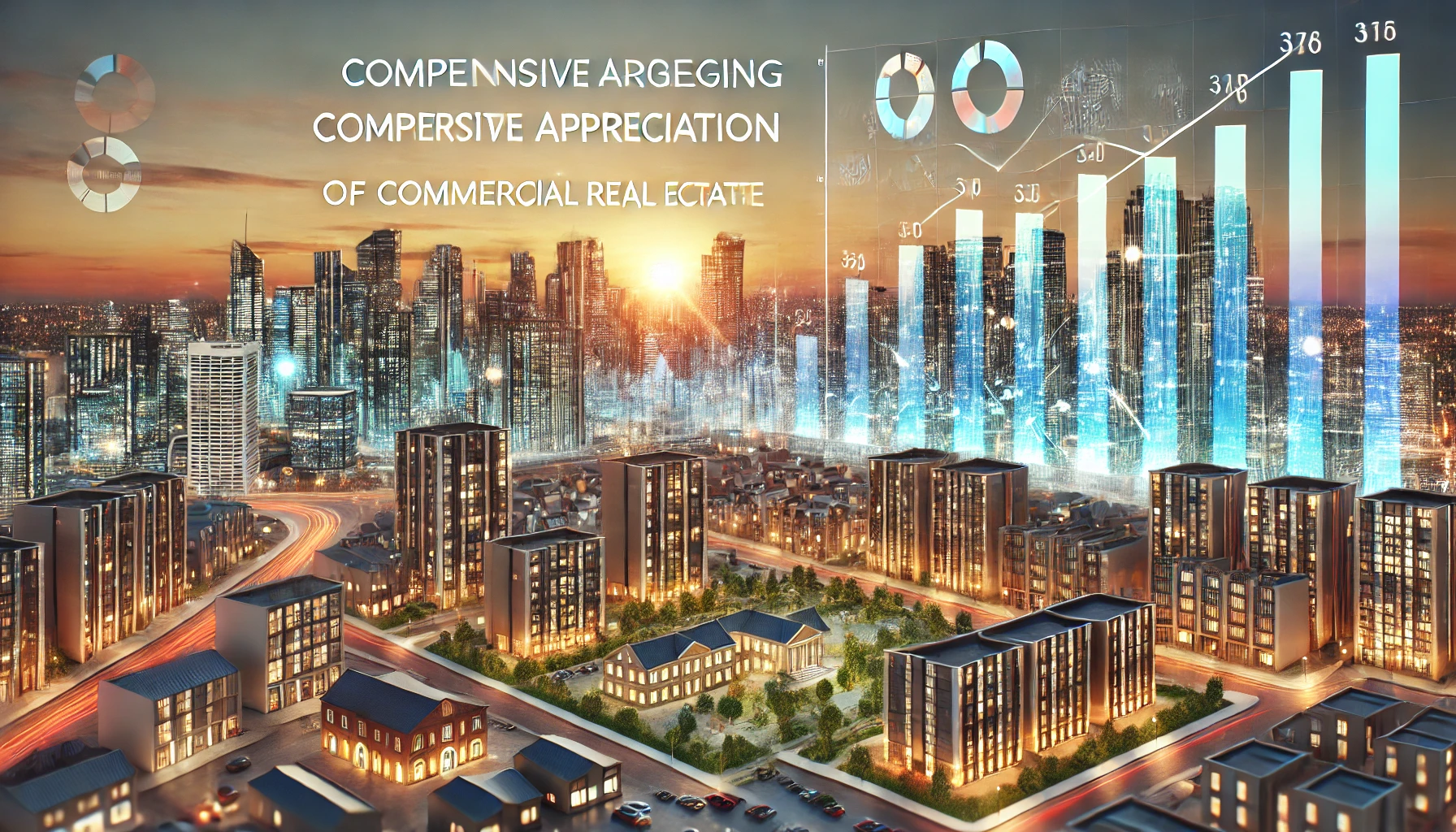Commercial Real Estate (CRE) is one of the biggest sectors of the real estate area. As a novice investor, business owner, or citizen with some interest in the market, it helps to know the logic behind how commercial real estate functions. In this blog, we will analyze what commercial real estate is, its types, interest rates, loan requirements, and leading companies in the real estate business in the country.
What is Commercial Real Estate?
Commercial real estate are properties that are used in doing a business and not as a residence. Unlike residential property, which constitutes homes and apartments, commercial ones are established to earn money via renting of space, or conducting business. Examples of some typical commercial real estate include:
- Office buildings
- Retail premises (such as shopping malls or shops)
- Warehouses and industrial plants
- The hotels and motels
- Apartment buildings (with 5 or more units, yes they are commercial!)
The primary purpose of commercial real estate investment is to make cash, whether in the form of monthly rent payouts or by selling the property at a price that is higher than what it was bought.
Types of Commercial Real Estate
Commercial real estate falls within a number of categories. All of them have varying purposes and have their advantages and disadvantages.
1. Office Buildings
These are structures that can be utilized in working areas. They may include small local-based offices, or massive sky-scrapers in the central locations. There are three types of office buildings categorizing it in general:
- Class A Refined, new structures at prime sites.
- B: Medium buildings with average facilities.
- Class C: Buildings that are older and most likely in unfavorable locations.
2. Retail Spaces
Trade real property Involves Shopping malls Strip malls Stand-alone stores The companies that lease such spaces include foods such as
- restaurants,
- cloth stores or
- grocery stores.
3. Industrial Buildings
These are factories, warehouses and distribution centers. Attributable to a variety of practices, industrial real estate will frequently be utilized as either a manufacturing or storage facility in the distribution of goods.
4. Multifamily Housing
Any residential property containing 5 or more property units is done as commercial property. These include apartment buildings and high rise condominiums.
5. Hospitality
Hotels, motels and resorts are part of such hotels. They are short term-tenures and are mostly referenced to tourism and travelling.
6. Special Purpose
Not all commercial buildings can fall in specific categories. These examples can include schools, churches, amusement parks, self-storage units as well.
Top Companies in Top Commercial Real Estate
The market is understood to have a large number of market players. These firms are operating, developing or investing in properties of different kinds throughout the U.S. and around the world.
The following are some of the best companies dealing with CRE in the United States:
Coldwell Banker Richard Ellis (BRE) is the highly commercial De commercial real estate services firm worldwide. They provide property management, leasing, investment advice and so on.
2. Jones Lang LaSalle or JLL
With headquarters in Chicago, JLL is a company that offers advisory, development and investment management services.
3. Cushman & Wakefield
This firm has a reputation of good worldwide presence in property sales, lease and valuation.
4. Colliers International
Colliers has over 60 branches and countries of operation and deals with brokerage, property management and consultancy.
5. Newmark Group
Newmark has a variety of CRE services, including capital markets, leasing and property technology solutions.
Such companies will tend to collaborate with big customers and also assist small entrepreneurs in order to get them properties and keep them.

Interest Rates on Commercial Real Estate
The rates of commercial real estate loans do not match with the rates of residential mortgages. They tend to be higher due to the fact that commercial loans are considered as a risk about it.
By the middle of the year 2025, the interest rates on the commercial real estate are normally found at 6.5 – 9%, and it depends on:
- credit score of the borrower
- character of property
- Loan period and sum
- The lender requirements
- Market whereabouts and inflation.
The interest rates should be either fixed or variable, and the commercial loans often have shorter duration (5 to 20 years) as opposed to home loans.
Commercial Real Estate Loans, Required and How they Work
Funding a commercial property loan is slightly different than an owner-occupied residential property loan. The lenders aspire to ensure that you are financially secure and would get adequate income to pay them back the loans and that the property would be a source of income.
Basic Requirements of Loan
1. Good credit Score
Your credit score must be 660 and above but some lenders can even accept a lower score.
2. Down Payment
A commercial real estate down payment requires most lenders to give 20 to 30 percent.
3. Business Plan or Property Study
You might be required to demonstrate the nature of income creation of the property or how your business will prosper.
4. Property Income
Lenders will scrutinize the DSCR (Debt Service Coverage Ratio) to be sure that the property will generate cash that can cover loan repayments. The DSCR of 1.25 or more is normally required.
5. Financial Documents
Taxes, bank accounts, business permit, and house valuations will be needed.
Typical Loans:
- Conventional Bank Loans-These are loans provided by banks and credit unions.
- SBA Loans- These loan are government backed (such as SBA 504 and SBA 7(a)) and are suitable for small businesses.
- Bridge Loans- The loans that are used in the gap period up to the availability of permanent financing.
- Hard Money Loans -Asset, Fast loans, typically at higher rates.
What is the advantage of investing in commercial real estate?
Advantages of investing in commercial real estate:
- More income potential than residential properties.
- Long term lease holders (most leases 3-10 years).
- Spreading your investments.
- Tax advantages, such as a write off of mortgage interests and depreciations.
Nevertheless, commercial properties are also associated with risks, including the longer time gap between tenants and property holders and higher initial investments and the changes in the market.
Conclusion
Commercial real estate is a powerful investment key tool, business developer and long term investor. Whether it is an office building, store, or a hotel you wish to invest in, learning the fundamentals about CRE, its subtypes, key players, financing needs, as well as interest rates is mandatory.
Although it is more complicated than just residential real estate, a decent team and correct understanding can bring good returns and financial security in the field of commercial real estate.
You should definitely research, consult and plan the proposed financing strategy should you be contemplating venturing into the commercial market. The world of the CRE is replete with opportunities- provided you know where to find them.
Not sure how to Inner Addiction works? Visit with a commercial real estate broker or lender in your area to discuss your possibilities.



Pingback: Is Now the Time to Buy Target Stock: 2025 - Epic Minds
Pingback: Dream Big, Start Early Saving 2025: Secrets of Living Lavishly Later - Epic Minds